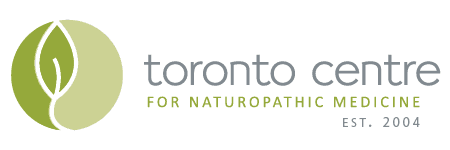Psoriasis
Psoriasis is well-managed using naturopathic medicine.
Psoriasis is a skin condition in which improper immune system functioning causes skin cells build up more quickly than is considered normal, resulting in patches of thickened skin.
There are several types of psoriasis, including plaque psoriasis (the most common type), guttate psoriasis, pustular psoriasis, nail psoriasis and psoriatic arthritis. It is a chronic condition that may feature periods of flare up and remission.
It is unclear what causes this immune system malfunction, but possible triggers include infections, skin injuries, stress or exposure to tobacco, alcohol or certain medications (e.g., beta blockers).
Seek professional healthcare if your psoriasis is associated with arthritis (joint pain and swelling).
Symptoms of Psoriasis
Possible symptoms of psoriasis include:
- Red patches of skin with silvery scales
- Small, scaling skin spots
- Dry, cracked skin
- Thickened, pitted nails
- Joint pain and swelling
Treatment of Psoriasis at Toronto Centre for Naturopathic Medicine
At Toronto Centre for Naturopathic Medicine, the goals of psoriasis treatment are minimizing skin plaque formation and episode recurrence, and managing pain of associated arthritis.
Conventional treatment for psoriasis may include light therapy, or a variety of medications, including topical corticosteroids, retinoids or anthralin; methotrexate; azathioprine; or immunomodulating drugs. These treatments may have short- or long-term side effects.
For this reason, you may choose to try natural treatment to possibly avoid use of conventional medications, or together with conventional medications in order to decrease dosages of conventional medications required to manage your psoriasis symptoms.
Naturopathic treatment of any chronic health concern must be recognized as a process that involves:
- Identifying specific treatment goals
- Development by your naturopathic doctor, of a thorough understanding of all factors affecting your health, including physical, psychological, emotional and lifestyle factors
- Development of a comprehensive treatment plan
- Implementation and maintenance of that plan through periodic monitoring and adjustment
At Toronto Centre for Naturopathic Medicine, a typical approach to treating psoriasis may be to:
- Identify and address underlying factors in your lifestyle (e.g., stress, obesity, hygiene, smoking, excessive alcohol consumption, use of certain medications, lack of sun exposure) that may be contributing to psoriasis frequency and intensity
- Limit severity of skin symptoms using acupuncture
- Limit arthritis pain and swelling using botanical (herbal) medicines
- Reduce frequency and severity of “flare-ups” by “balancing immune system activity using botanical (herbal) medicines and nutritional supplements
Where appropriate, a number of therapeutic options are available, to be used alone, or more often in a complementary fashion, including:
- Nutritional counseling
- Nutritional supplements
- Metabolic detoxification protocols
- Botanical (herbal) medicines
- Acupuncture
- Homeopathy
- Bowen Therapy
- Suikodo™
- Hydrotherapy
- Exercise prescription
- Relaxation (meditation) training
- Lifestyle medicine and counseling
Treatments provided by naturopathic doctors are covered by most extended healthcare plans.
References
Psoriasis [Internet]. Mayo Foundation for Medical Education and Research, [cited 18 Feb 2009]. Available from: http://www.mayoclinic.com/health/psoriasis/DS00193http://www.mayoclinic.com/health/psoriasis/DS00193.


